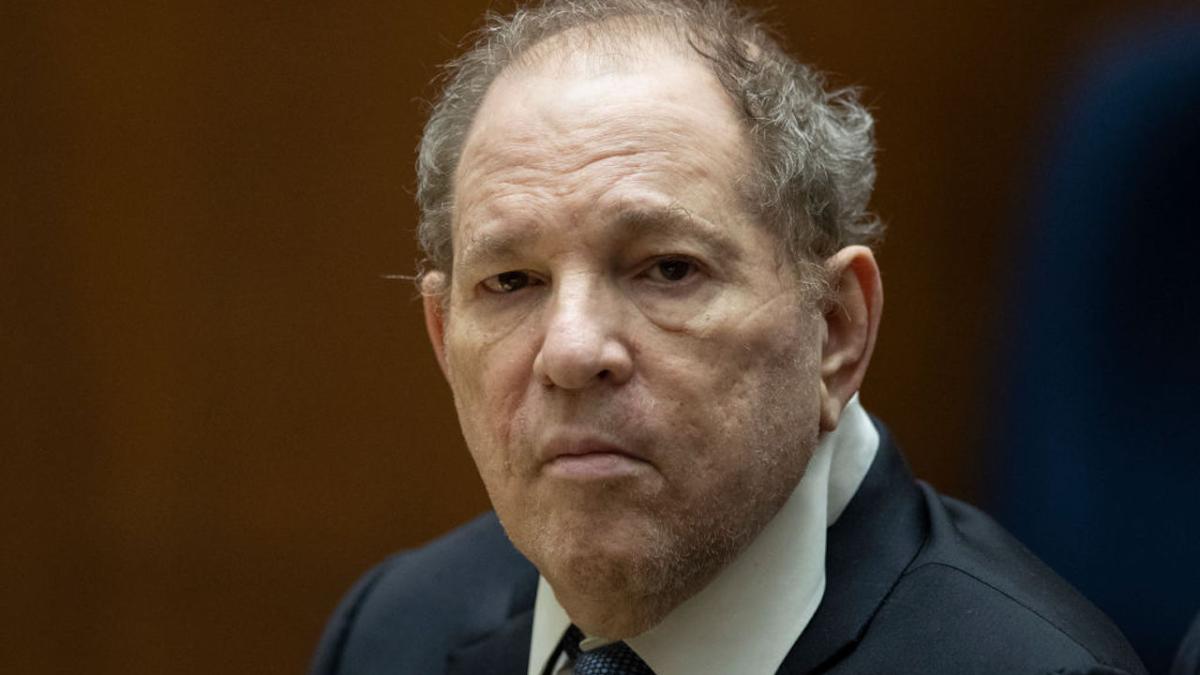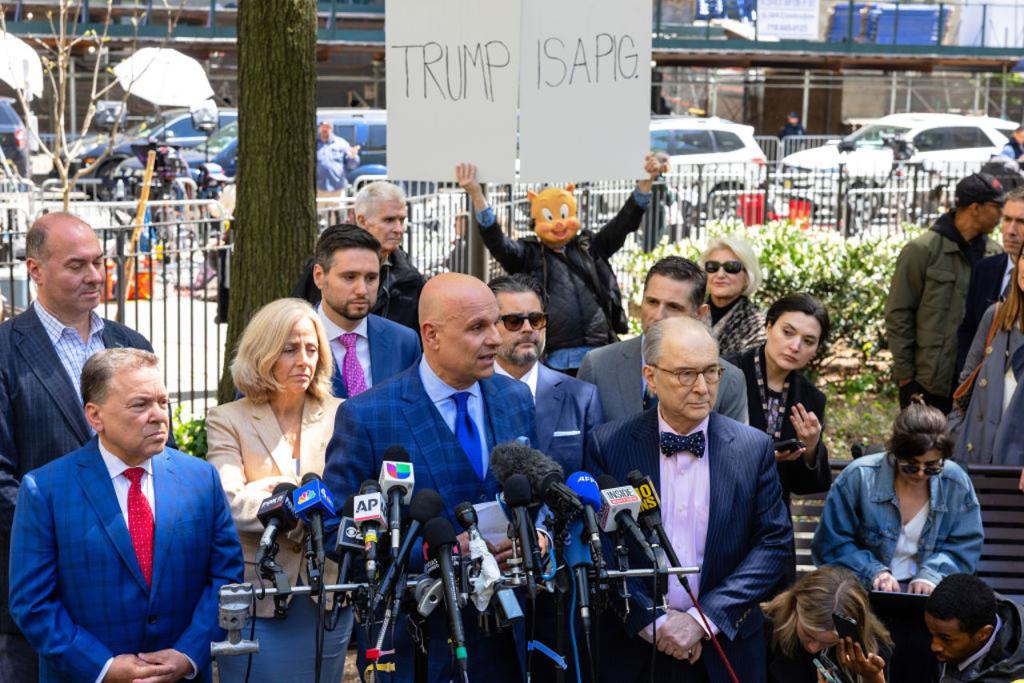
Harvey Weinstein‘s 2020 rape conviction was overturned by New York’s Court of Appeals overnight, in what one judge described as a “disturbing trend of overturning juries’ guilty verdicts in cases involving sexual violence”.
It’s a huge blow for the #MeToo movement, which reached mainstream awareness with a series of investigations into Weinstein’s predatory behaviour.
Here’s what happened — and what comes next.
What happened? And what is the Molineux rule?
The seven-judge panel voted 4-3 to overturn Weinstein’s 23-year prison sentence, finding that “the trial court erroneously admitted testimony of uncharged, alleged prior sexual acts”.
The judge on that case, Justice James M. Burke, was accused of allowing three women to testify, even though their allegations of assault were not part of the charges at hand. It was allowed under what’s known as New York’s Molineux rule, named for a landmark 1901 case. Under the Molineux rule, prosecutors cannot use such testimony to prove the defendant has a “propensity” to commit crime, but they may use it as evidence of motive or intent.
The ruling also claims Weinstein’s right to testify was infringed by allowing prosecutors to cross examine him on unrelated accusations, which it says demonstrated his “appalling, shameful, repulsive conduct.”
However, Attorney Douglas H. Wigdor, who has represented eight Weinstein accusers — including two at this trial — said this testimony was relevant to the trial, and in fact was flagged at the time.
“Courts routinely admit evidence of other uncharged acts where they assist juries in understanding issues concerning the intent, modus operandi or scheme of the defendant,” he said in a statement. “The jury was instructed on the relevance of this testimony and overturning the verdict is tragic in that it will require the victims to endure yet another trial.”
And Appellate Chief Steven Wu said Weinstein’s acquittal on the most serious charges showed jurors were paying attention, and were not confused or overwhelmed by additional testimony. Weinstein was acquitted on two counts of predatory sexual assault and one charge of first degree rape.
Judge Madeline Singas — who voted not to overturn — went a step further, saying the decision was part of a “disturbing trend” of overturning guilty verdicts in cases of sexual violence. Three years ago, Bill Cosby‘s indecent assault conviction was overturned by Pennsylvania’s top court; the Supreme Court refused to hear an appeal.
“The Molineux rule—created by this Court—has never been static,” Singas said. “Instead, its use has evolved over time to meet the challenges of complex criminal prosecutions. Unfortunately, in the context of sexual assault, that evolution lapses today with a decision that has all but ended the use of Molineux evidence in such cases.”
Why will Harvey Weinstein remain in jail?
Weinstein has been serving his 23-year jail sentence in a prison in upstate New York since 2022. However, his New York conviction wasn’t his only one; he was sentenced to 16 years in prison in Los Angeles in 2022, for another rape.
It means that despite this overturn, he will remain in prison. He will now be taken to California to serve his time there.
What are Weinstein’s accusers saying?
In a word: they’re gutted.
Prominent civil rights attorney Debra Katz, who represented several Weinstein accusers, said her clients are “feeling gutted” by the ruling, but that she still believed their testimony changed the world.
“People continue to come forward, people continue to support other victims who’ve reported sexual assault and violence, and I truly believe there’s no going back from that,” she said.
What is Weinstein’s camp saying?
His layer, Arthur Aidala, said the Court of Appeals ruling was “a tremendous victory for every criminal defendant in the state of New York”. He had argued that the extra testimony went beyond the normally allowable details about motive, opportunity, intent or a common scheme or plan, essentially putting Weinstein on trial for crimes he wasn’t charged with.

What happens now?
The Manhattan District Attorney’s office said it intends to retry Weinstein, which means his accusers may be forced to retell their stories on the witness stand.
“We will do everything in our power to retry this case, and remain steadfast in our commitment to survivors of sexual assault,” the prosecutors’ statement said.
Weinstein maintains his innocence.
Help is available.
- If you require immediate assistance, please call 000.
- If you’d like to speak to someone about sexual violence, please call the 1800 Respect hotline on 1800 737 732 or chat online.
- Under 25? You can reach Kids Helpline at 1800 55 1800 or chat online.



